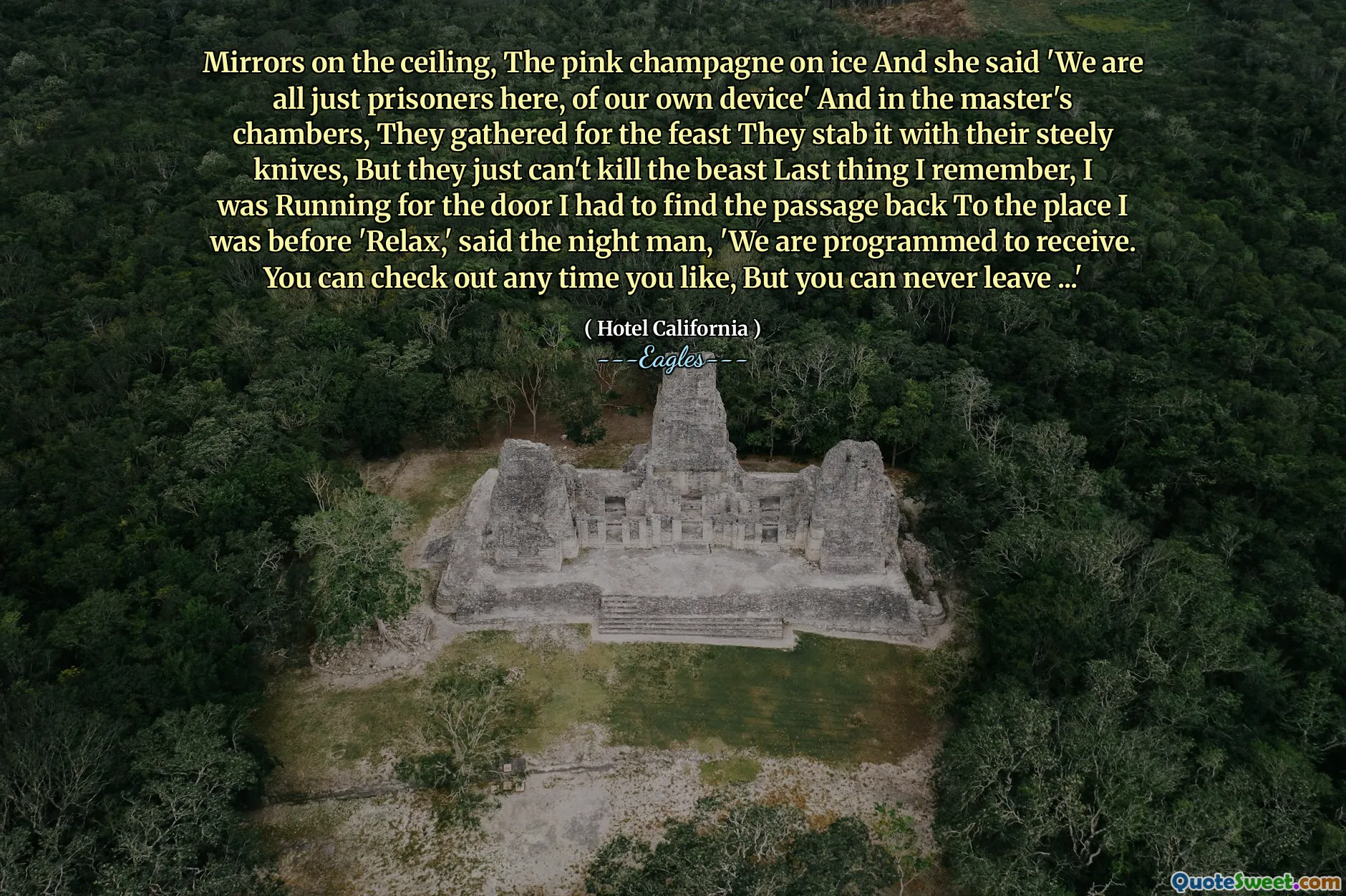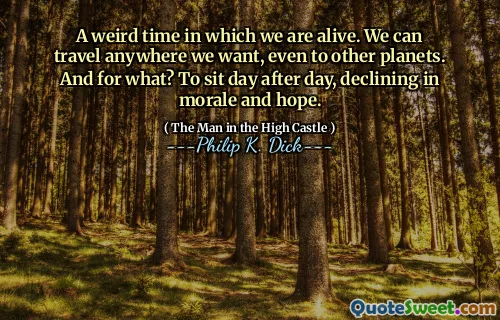
Mirrors on the ceiling, The pink champagne on ice And she said 'We are all just prisoners here, of our own device' And in the master's chambers, They gathered for the feast They stab it with their steely knives, But they just can't kill the beast Last thing I remember, I was Running for the door I had to find the passage back To the place I was before 'Relax,' said the night man, 'We are programmed to receive. You can check out any time you like, But you can never leave ...'
This excerpt from the song "Hotel California" by the Eagles captures a profound sense of entrapment and illusion, disguised beneath the veneer of glamour and indulgence. The imagery of "mirrors on the ceiling" and "pink champagne on ice" conjures opulence and a seductive environment, yet the narrative quickly reveals a haunting undercurrent: the guests are prisoners "of our own device." This phrase signifies a self-imposed captivity, perhaps pointing to the consequences of choices, addictions, or societal constructs. The "master's chambers" and the unsuccessful attempts to "kill the beast" evoke a struggle against an intangible yet relentless force, symbolizing inner demons or external pressures that resist defeat.
The plea for escape but inability to "leave" reflects a chilling paradox of freedom without liberation, resonating strongly with existential themes. There's a psychological depth here—how individuals can be trapped within their own minds or circumstances despite longing for release. The night's narrative voice, the "night man," personifies the system or mindset that perpetuates this endless cycle, underscoring a programmed acceptance that defies personal autonomy.
In a broader cultural context, this passage critiques hedonism, excess, and the allure of superficial luxury that ultimately enslaves rather than fulfills. It serves as a metaphorical labyrinth where the luxury and comfort mask a prison, evoking the human condition concerning freedom, desire, and the search for meaning. The poetic layering of imagery, metaphor, and narrative invites reflection on one's own life and the traps created by choices or society, reminding us to examine skeptically the environments and systems we inhabit.


